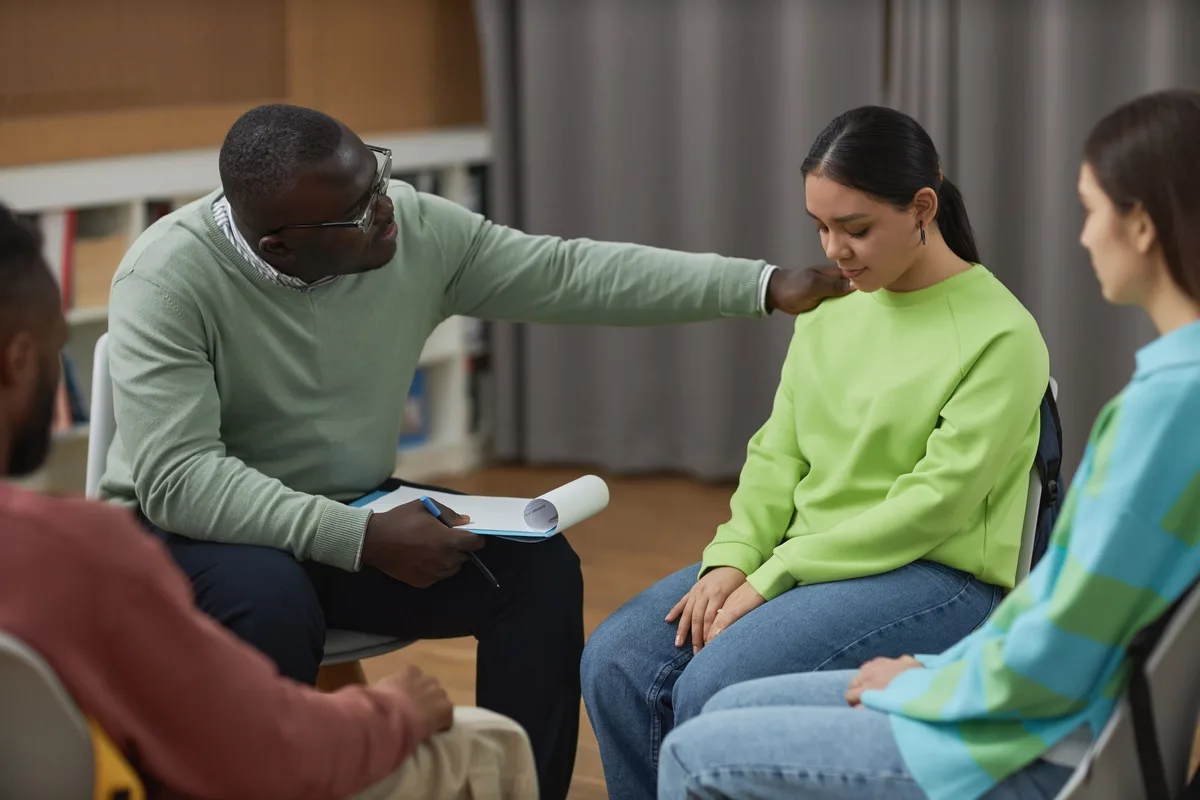24/7 Helpline:
(866) 899-221924/7 Helpline:
(866) 899-2219
Learn more about PTSD Treatment centers in Hallsville

Other Insurance Options

Cigna

BlueShield

Magellan Health

Humana

Molina Healthcare

Private insurance

CareSource

EmblemHealth

Medical Mutual of Ohio

Choice Care Network
Beacon

Regence

Absolute Total Care

AllWell

Lucent

United Health Care

MVP Healthcare

Horizon Healthcare Service

Amerigroup

Covered California



















